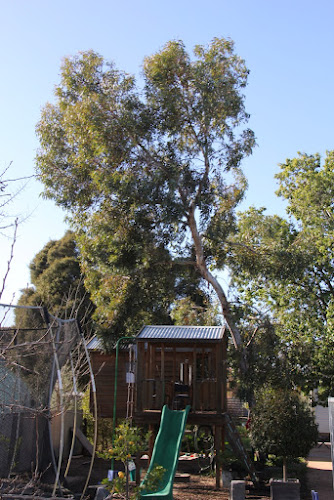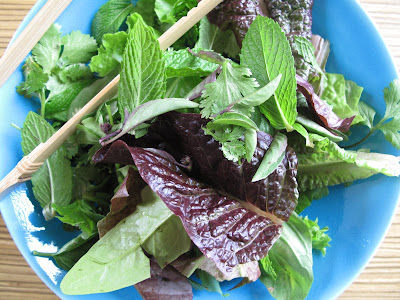It may be still winter for another ten days, according to the traditional European four seasons per year model, but in Gariwerd, our nearest Indigenous area, it is peryan - the season of wildflowers. The wattle is in bloom, and in our own native garden, so too is the Happy Wanderer,
Hardenbergia violacea, and the pretty mauve
Grevillia sericea, along with its lovely unnamed cousin, below, with its fire red blooms.
Our favourite resource for Aboriginal Seasonal Calendars is
Banksias and Bilbies - Seasons of Australia, written by Alan Reid, and published by the Gould League in 1995.
In Australia, Aboriginal survival depended upon their close affiliation with the sequence of seasonal events, especially the life cycles of plants and animals used as food, but also the risk of natural disasters such as fire or flood. Aboriginal tribal calendars relate to these seasonal events. Those in the North of our country have been in continual use; many in the south have been resurrected or rediscovered in recent years since Alan Reid introduced the calendars in his book.
Reid suggested the gathering of natural history observations within distinct regions in order to identify true seasonal patterns, and in 1994 he launched the Timelines Australia Project, which aimed to develop - or recover - seasonal calendars in each major region in Australia.
Banksias and Bilbies was published, in part, to assist with the monitoring and recording of these seasonal events.
Alan proposed a six season calendar for his region, the Middle Yarra region of Victoria. His seasons were Autumn, Winter, Pre-Spring, True Spring, Early Summer and Late Summer.
The closest region to us, Gariwerd, uses the Brambuk calendar, which also recognises the six seasons proposed by Reid, reflecting the changes in temperature, rainfall and availability of plants and animals for food in our regional area (well, sort of our area).Seasonal weather calendars for Gariwerd as well as other regions of Australia are displayed in the
Bureau of Meteorology's Indigenous Weather Knowledge website. The site is in its early stages - further regions will be progressively added to the site, but it is worth checking to see whether your region is already featured. The website is a good amalgamation of thousands of years of indigenous weather knowledge, complemented by the scientific and statistical approaches implemented by Alan Reid.
Each of the six Gariwerd seasons is about two months long. The Jardwadjali and Djab Warrung people have both lived in the region, and both recognised these same six seasons.
Of course, European plants also follow our unique Australian calendar. Petyan is especially beautiful in our garden because of the swathes of daffodil species that we have planted under the pear tree, as well as the blossom along the drive. Later in the year, in ballambar, or early summer, the English garden comes into its own. Sadly it is such a short season here - possibly even shorter than the two months in Gariwerd. Kooyang, or late summer arrives all too soon with its bushfires, hot winds and drought. European flowers do not like kooyang very much.
Banksias and Bilbies is part nature diary, part week-by-week information guide. It is a wonderful book if you can find it cheaply, but is not worth the exorbitant prices currently being asked for on
Abe. Go for the website instead.
While you recover from that shock, I hope you'll enjoy some more peryan-time photos of our garden. I'm so glad we arrived home in time to see this.


















































